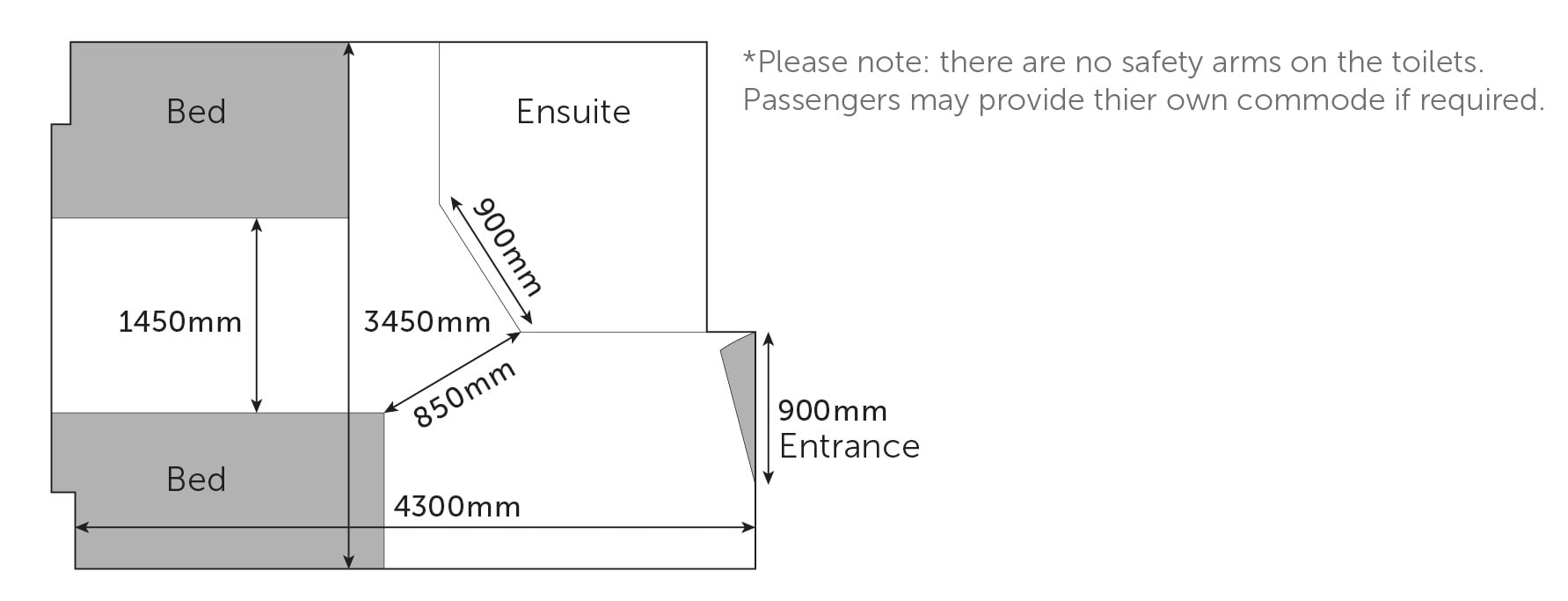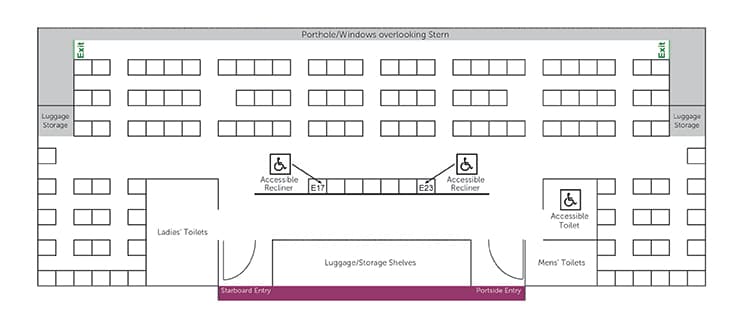Passengers using a wheelchair, gopher, scooter, crutches, or a walker to aid their mobility, are required to board and disembark via our People Mover.
Ships wheelchairs are only available for boarding and disembarking, passengers requiring a wheelchair for the duration of the sailing must supply their own.
Passengers travelling with reduced mobility and require any of the following assistance must complete the specific needs and assistance requirement form. The form will be available on completion of your booking. Alternatively, click here if you have an existing booking number.
- Ship wheelchair required for boarding and disembarking
- Requires space at rear/side of vehicle for loading and unloading mobility aid
- Hold a valid Accessible Parking Permit or use a mobility aid such as wheelchair, gopher, scooter, crutches, walker
- People Mover Required
Mobility assistance facilities:
Three Bed Private Accessible Cabin
Each Ship has two accessible cabins. This accommodation category is exclusively for passengers requiring wheelchair access, reduced mobility and passengers with vision impairment.
To book please Contact Us.

• Accessible Recliners. Each Ship has two accessible recliners which are close to Accessible Toilets and within reach of emergency alarm/call buttons. (Note: Recliner Lounge entry 930mm wide)

• Accessible Toilets on Deck 7 and Deck 10. Please refer to the ship map (link to ship map) for exact locations. (Note: Toilet entry 880mm wide)
• Corridors in the cabin accommodation are 900mm wide, vehicle deck entry ways are 890mm and Orange lift ramps are 800mm wide (Lifts open to 980mm wide). Please take into consideration these dimensions with respect to the size of any mobility aid you intend to use on board. Should the mobility aid exceed the dimensions, you will not be able to use the mobility aid on board.







